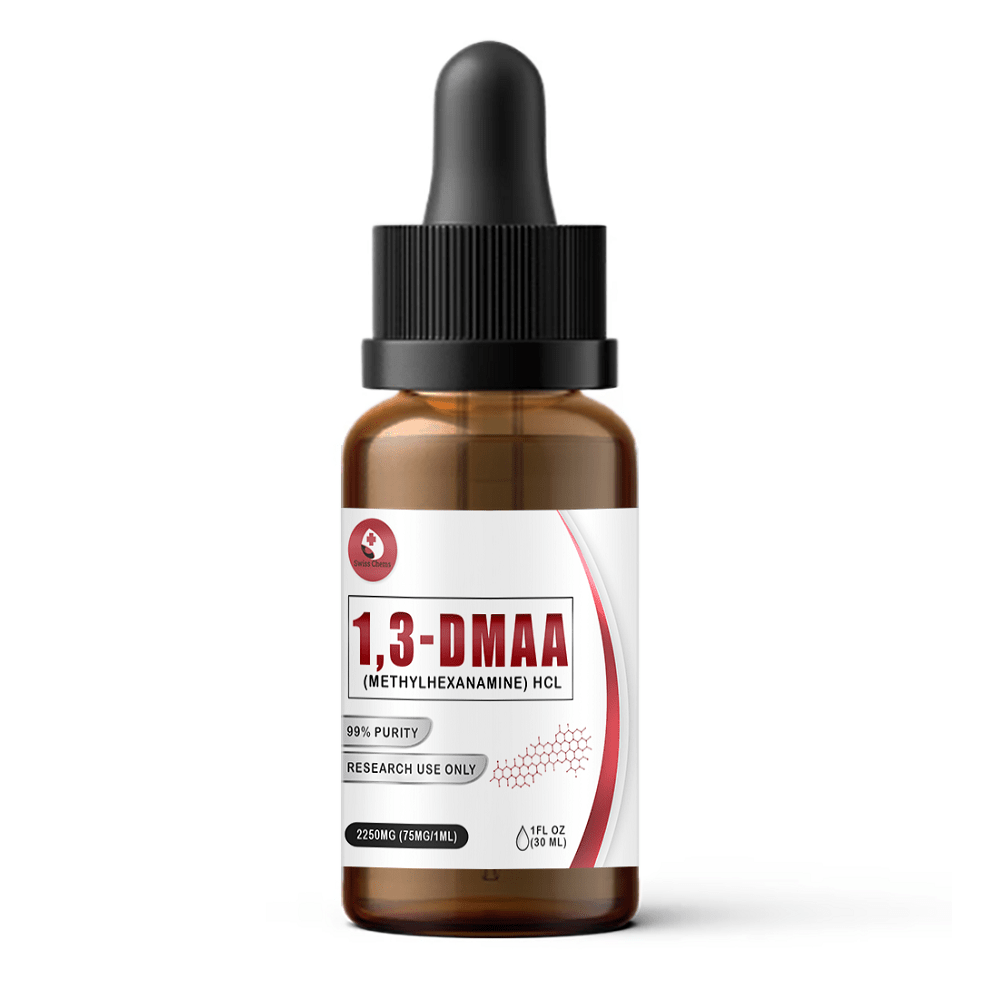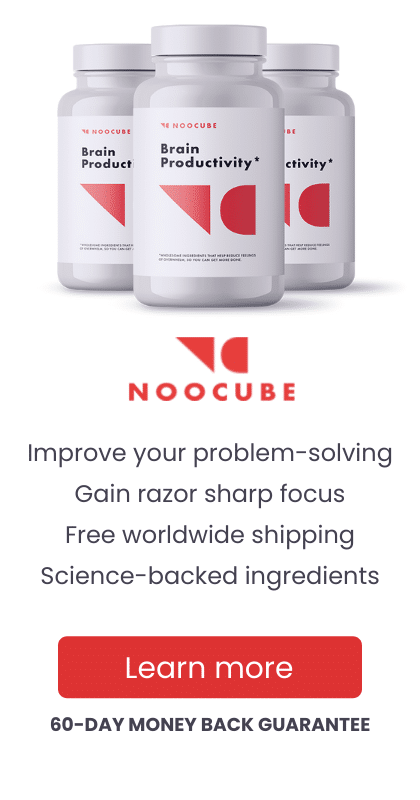Table of Contents
Methylhexanamine, or DMAA, is a synthetic drug created in a lab, originally used as a nasal decongestant via a nasal spray. It is an amphetamine derivative that is illegal in several countries. It is currently sold as a dietary supplement for increased energy, weight loss, and athletic performance. Due to safety concerns, the FDA is actively working on removing the commercial availability of dietary supplements containing DMAA.
1,3-DMAA (Methylhexanamine) HCl – Solution | Swiss Chems
Medical History
Created by Eli Lilly and Company in 1948 as a nasal decongestant, DMAA was used for many years until the company voluntarily recalled it in the 1970s. In 2006, it began to be used as a stimulate in various dietary supplements. Many dietary supplement manufacturers claimed that it was a naturally derived compound from the geranium plant and perfectly safe to use. Over time the drug’s safety was put into question due to the adverse effects it was giving users and the five deaths that were, in part, associated with the consumption of supplements containing the drug.
Methylhexanamine is listed under many different names, including 1,3-DMAA, 1,3-Dimethylpentylamine, 4-Methyl-2-hexylamine, Dimethylamylamine, 1,3-Dimethylamylamine, 4-Methyl-2-hexanamine, Geranamine, 2-Hexanamine, 4-methyl- (9CI), Methylhexanenamine, and 2-Amino-4-methylhexane. Some companies list the drug under the name of geranium oil, geranium stems, or rose geranium in an attempt to convey its natural creation.
Benefits
Considered an unsafe food additive, the benefit claims of DMAA are unsubstantiated with no research backing them up. The stimulant properties of the drug promote its only possible benefit of it being used for increased energy, similar to that in caffeine. Other potential but unproven benefits of the drug include:
- Boosting weight loss
- Improving attention deficit-hyperactive disorder or ADHD
- Increasing the effectiveness of workouts for bodybuilding
- Boosting athletic performance
- More research is needed to validate these benefits. The FDA does not advise consumers to purchase and products containing the drug, citing the lack of information to prove the safety of consuming methylhexanamine.
Side Effects
DMAA is thought to pose many serious safety concerns. The stimulant properties inherent in the drug pose a concern with the possibility of it increasing the chance of an irregular or rapid heartbeat, increased blood pressure, and increasing the chance of a stroke or heart attack. Consuming a stimulant such as this drug can cause increased anxiety, trouble sleeping, appetite changes, shortness of breath, chest tightness, jitteriness, and irritability. For individuals that already have issues with their cardiovascular health, it is highly recommended to avoid any kind of supplements containing the drug. Avoidance is also recommended to individuals that are pregnant or breastfeeding, have high blood pressure, or require surgery.
Clinical research indicates that the drug causes an increased heart rate and blood pressure in individuals when consumed. Several reports on the drug have been made connecting it to individuals who had consumed the drug and suffered a severe stroke, a heart attack, a toxic buildup of lactic acid in the body, or death.
Methylhexanamine interacts negatively with other stimulating drugs, including methylphenidate, pseudoephedrines, caffeine, amphetamines, diethylpropion, and phentermine.
Dosage
There is not enough scientific research on the drug to accurately provide a safe, recommended dosage of DMAA. The dosage is depended on the age, sex, health, and various other conditions of the individual wishing to take the drug. A healthcare provider should be sought for guidance on the appropriate dosage guidelines that an individual should follow.
The stimulant drug methylhexanamine is widely regarded by healthcare authorities and the FDA to be an unsafe supplement ingredient. The oral consumption of this drug can increase an individual’s heart rate and blood pressure, and in some individuals, it could lead to serious health complications. The FDA is actively working on banning all supplements that contain the drug for the health and benefit of consumers.



